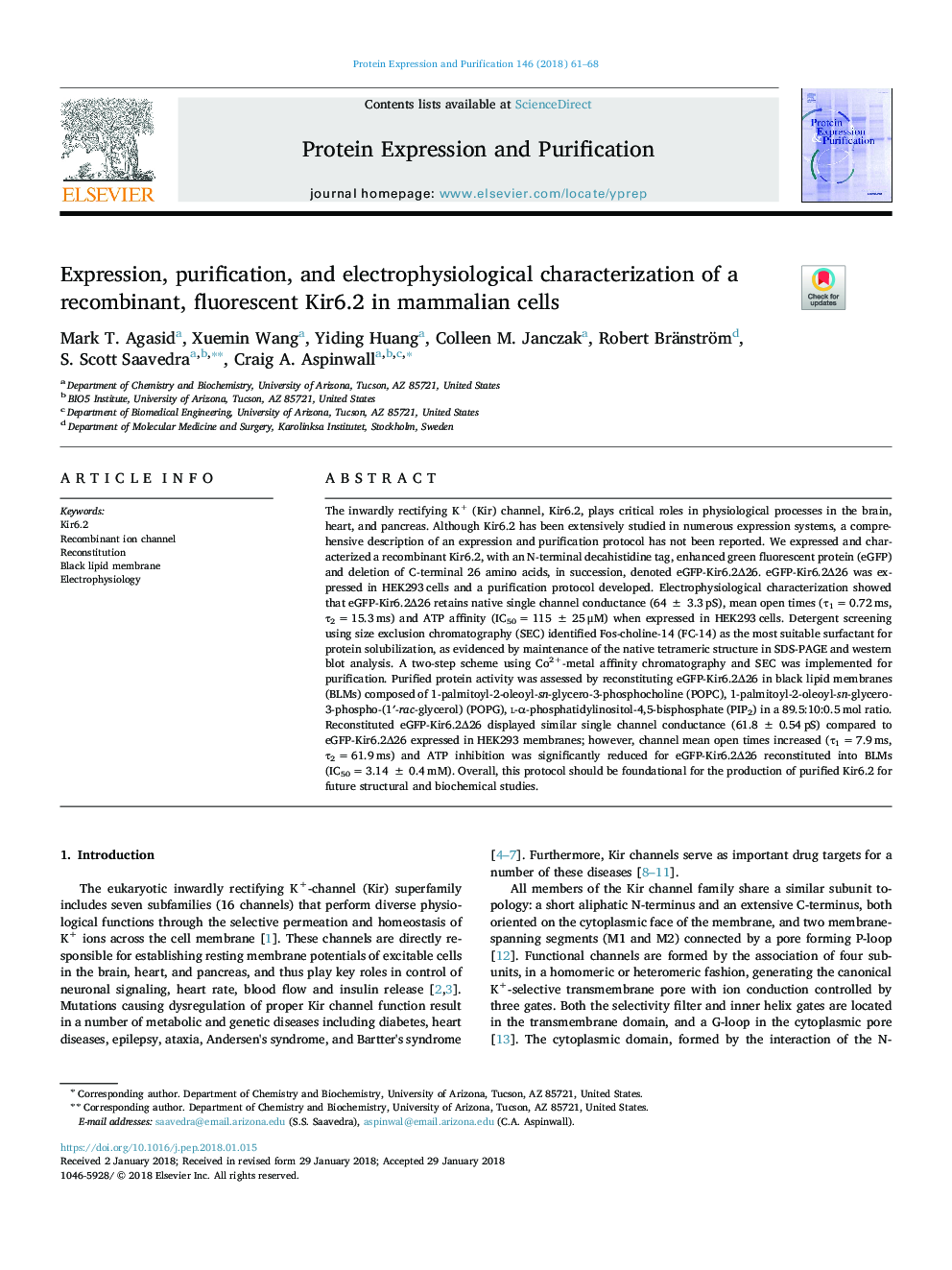| Article ID | Journal | Published Year | Pages | File Type |
|---|---|---|---|---|
| 8359500 | Protein Expression and Purification | 2018 | 8 Pages |
Abstract
The inwardly rectifying K+ (Kir) channel, Kir6.2, plays critical roles in physiological processes in the brain, heart, and pancreas. Although Kir6.2 has been extensively studied in numerous expression systems, a comprehensive description of an expression and purification protocol has not been reported. We expressed and characterized a recombinant Kir6.2, with an N-terminal decahistidine tag, enhanced green fluorescent protein (eGFP) and deletion of C-terminal 26 amino acids, in succession, denoted eGFP-Kir6.2Î26. eGFP-Kir6.2Î26 was expressed in HEK293â¯cells and a purification protocol developed. Electrophysiological characterization showed that eGFP-Kir6.2Î26 retains native single channel conductance (64â¯Â±â¯3.3â¯pS), mean open times (Ï1â¯=â¯0.72â¯ms, Ï2â¯=â¯15.3â¯ms) and ATP affinity (IC50â¯=â¯115â¯Â±â¯25â¯Î¼M) when expressed in HEK293â¯cells. Detergent screening using size exclusion chromatography (SEC) identified Fos-choline-14 (FC-14) as the most suitable surfactant for protein solubilization, as evidenced by maintenance of the native tetrameric structure in SDS-PAGE and western blot analysis. A two-step scheme using Co2+-metal affinity chromatography and SEC was implemented for purification. Purified protein activity was assessed by reconstituting eGFP-Kir6.2Î26 in black lipid membranes (BLMs) composed of 1-palmitoyl-2-oleoyl-sn-glycero-3-phosphocholine (POPC), 1-palmitoyl-2-oleoyl-sn-glycero-3-phospho-(1â²-rac-glycerol) (POPG), l-α-phosphatidylinositol-4,5-bisphosphate (PIP2) in a 89.5:10:0.5â¯mol ratio. Reconstituted eGFP-Kir6.2Î26 displayed similar single channel conductance (61.8â¯Â±â¯0.54â¯pS) compared to eGFP-Kir6.2Î26 expressed in HEK293 membranes; however, channel mean open times increased (Ï1â¯=â¯7.9â¯ms, Ï2â¯=â¯61.9â¯ms) and ATP inhibition was significantly reduced for eGFP-Kir6.2Î26 reconstituted into BLMs (IC50â¯=â¯3.14â¯Â±â¯0.4â¯mM). Overall, this protocol should be foundational for the production of purified Kir6.2 for future structural and biochemical studies.
Related Topics
Life Sciences
Biochemistry, Genetics and Molecular Biology
Biochemistry
Authors
Mark T. Agasid, Xuemin Wang, Yiding Huang, Colleen M. Janczak, Robert Bränström, S. Scott Saavedra, Craig A. Aspinwall,
